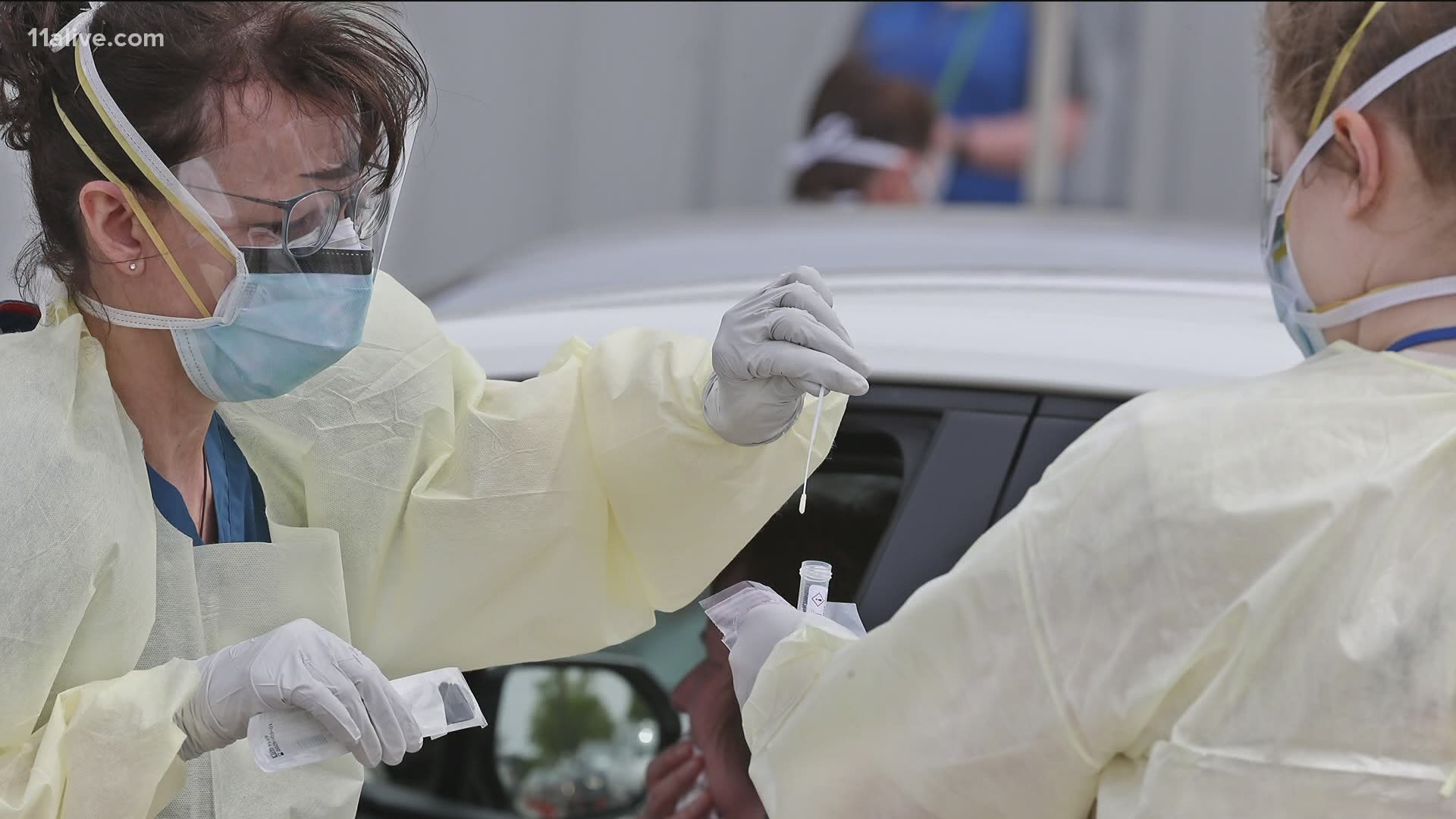ATLANTA — ATLANTA – As the state works to ramp up coronavirus testing in Georgia, medical experts acknowledge that there is a chance of false results.
Governor Brian Kemp is encouraging people across the state to undergo testing for the coronavirus even if they are not experiencing symptoms.
It’s possible for someone who has or has had the coronavirus to test negative.
Why?
“No test is 100% perfect all the time,” says Dr. Maria Sundaram, epidemiologist and research fellow at the Rollins School of Public Health and Emory University.
The Food and Drug Administration is cracking down on tests with false claims about their accuracy, but even tests with F.D.A. approval can produce false negatives.
There are two kinds of tests. The swab test can tell you if you currently have COVID-19.
If not done properly, the person taking the sample could miss the virus.
“If I took a nasal swab and it was negative, I just know there’s no virus in my nose,” says Dr. Sundaram. “But there could be some in my throat.”
The antibody test looks for signs in the blood that indicate a patient had the coronavirus. Part of the issue with accuracy hinges on when a patient is tested. It’s possible you could be sick from COVID-19, but your immune system hasn’t had a chance to produce the antibodies that would result in a positive test.
“You won’t see a big increase in antibody until two weeks after initial infection,” says Dr. Sundaram. “Whatever result you might get, still continue taking the precautions.”
The FDA is requiring companies that make the antibody test to prove they are at least 95% accurate in determining if a patient does not have COVID-19.
RELATED: Why is my pet acting strange?
RELATED: Why do viruses mutate?
RELATED: Why wash your hands for 20 seconds?

